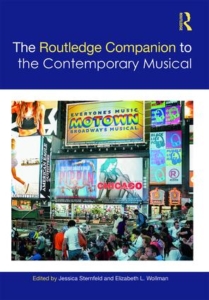The Routledge Companion to the Contemporary Musical
Chapter 16: The Pink Elephant in the Room
Opening Section
 The day after the revival of Promises, Promises opened on April 25, 2010, Newsweek posted an article entitled “Straight Jacket” on its website that began with the following provocation: “The reviews for the Broadway revival of Promises, Promises were negative enough, even though most of the critics ignored the real problem—the big pink elephant in the room.” As the author, pop culture critic Ramin Setoodeh, saw it, the problem everyone was ignoring about the revival was that Sean Hayes, the actor playing Promises’ lead role, was unconvincing in the part because he is an out gay man. Setoodeh reminds readers that Hayes is “best known as the queeny Jack on Will & Grace” and that the actor’s “sexual orientation is part of who he is.” Thus, he complains, “it’s weird seeing Hayes play straight. He comes off as wooden and insincere, as if he’s trying to hide something, which of course he is.” Setoodeh then describes a different gay actor’s performance on a primetime television show as “more like your average theater queen” than a convincing love interest for a girl, but returns to the topic of Promises, Promises to describe Hayes as someone who “tips off even your grandmother’s gaydar.” The piece’s ostensible point is to discuss the difficulties of being an out gay or lesbian actor, but the article is neither a careful critique of Promises, Promises nor coherently argumentative. Rather, Setoodeh’s article is more a set of musings prompted by his attendance at the Promises revival, and his dislike of the show and its central performance.
The day after the revival of Promises, Promises opened on April 25, 2010, Newsweek posted an article entitled “Straight Jacket” on its website that began with the following provocation: “The reviews for the Broadway revival of Promises, Promises were negative enough, even though most of the critics ignored the real problem—the big pink elephant in the room.” As the author, pop culture critic Ramin Setoodeh, saw it, the problem everyone was ignoring about the revival was that Sean Hayes, the actor playing Promises’ lead role, was unconvincing in the part because he is an out gay man. Setoodeh reminds readers that Hayes is “best known as the queeny Jack on Will & Grace” and that the actor’s “sexual orientation is part of who he is.” Thus, he complains, “it’s weird seeing Hayes play straight. He comes off as wooden and insincere, as if he’s trying to hide something, which of course he is.” Setoodeh then describes a different gay actor’s performance on a primetime television show as “more like your average theater queen” than a convincing love interest for a girl, but returns to the topic of Promises, Promises to describe Hayes as someone who “tips off even your grandmother’s gaydar.” The piece’s ostensible point is to discuss the difficulties of being an out gay or lesbian actor, but the article is neither a careful critique of Promises, Promises nor coherently argumentative. Rather, Setoodeh’s article is more a set of musings prompted by his attendance at the Promises revival, and his dislike of the show and its central performance.
These postshow ruminations caused rather a stir. On the gay culture website After Elton, editor- in-chief Michael Jensen posted a scathing response in which he described Setoodeh’s opinions as “shockingly retroactive,” and accused the critic of reiterating “tired gay-obsessions of the far right.” For Jensen, the crux of the matter was that Setoodeh’s critiques damaged the gay community as a whole. Jensen noted that Setoodeh is himself an out gay man, and he argued that “It’s already difficult enough for actors to brave any possible backlash by coming out. Having another gay man say he doesn’t think gay men can convincingly play straight, doesn’t make it any easier.” A few days later Sean Hayes was nominated for a Tony award as best actor in a musical, but the Newsweek kerfuffle had only just begun.
Hayes’s Promises co-star Kristin Chenoweth was next to weigh in on the topic publicly, calling the Newsweek piece “horrendously homophobic” and describing it as a “bigoted, factually inaccurate article that tells people who deviate from heterosexual norms that they can’t be open about who they are and still achieve their dreams.” Through early May, responses to Setoodeh’s article proliferated. Television producer Ryan Murphy called for a boycott of Newsweek; Oscar-winning screenwriter Dustin Lance Black penned an op-ed for the Hollywood Reporter with Jarrett Barrios, then-president of the Gay & Lesbian Alliance Against Defamation. The men attacked Setoodeh directly, saying that his piece “seems to raise more questions about his own internalized biases than what the ‘public’ actually perceives” and that the article “leans away from reality and tilts toward openly gay Setoodeh’s own issues with sexuality and femininity.”6 Some critics came to Newsweek’s defense. Alongside Barrios and Black’s vituperative ad hominem attacks, the Hollywood Reporter ran a well-reasoned dissent by Andrew Wallenstein. In a piece for the Huffington Post entitled “Now That You Mention It, Rock Hudson Did Seem Gay,” playwright Aaron Sorkin defended Newsweek, joking, “This is a sentence I never thought I would type: I’m coming to the defense of a theatre critic.”…



Leave a Reply
Want to join the discussion?Feel free to contribute!